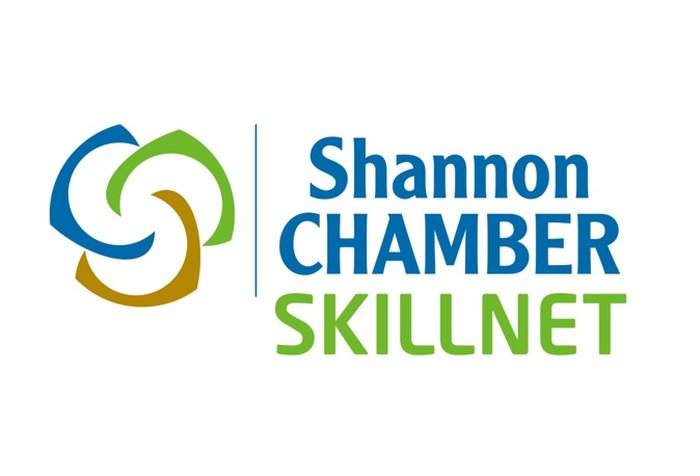
Annual Report Reveals 15,000 Irish SMEs Availed of Upskilling in 2017
Skillnet Ireland Annual Report reveals 15,000 Irish SMEs availed of upskilling and training in 2017
- 94% of the member companies that benefited from investment in training through Skillnet Ireland were SMEs
- Skillnet Ireland Chairperson warns of ever-widening productivity gap between indigenous SMEs and the multi-nationals based in Ireland
- 6% of the 240,000 SMEs registered in Ireland took part in Skillnet Ireland funded training programmes in 2017
- 73% of businesses reported Skillnet Ireland helped improve productivity and enhanced competitivenes
Skillnet Ireland released its 2017 annual report today which highlights that only 1 in 17 Irish companies (6%) took advantage of subsidised training in 2017.
The Annual Report also reveals that the number of businesses who accessed training through Skillnet Ireland networks in 2017 grew by 5%, with over 15,000 businesses investing in their staff across a range of sectors (e.g. Services 40%, Agri-business 26%, Manufacturing 7%). 94% of the member companies that benefited from investment in training through Skillnet Ireland were SMEs.
Speaking about Skillnet Ireland’s 2017 results, Minister for Education and Skills, Richard Bruton T.D. said:
“Skills are crucial to our competitiveness as a nation and the government is committed to ensuring that we have the right skills to meet the needs of our economy and society. This is particularly important in the context of the global challenges we now face. Skillnet Ireland plays a key, strategic role in providing for the needs of our workforce and reached nearly 50,000 learners through its learning network in 2017. We have increased funding to Skillnet Ireland by almost 20% for the current year to reflect the importance of this work.
“The promotion of lifelong learning and adapting to technological advances has always been at the core of workforce development. Ensuring that we are ‘future proofed’ to meet new skills challenges, is a critical part of delivering on our ambition to make Ireland’s education and training service the best in Europe by 2026.”
Speaking at the launch of the Annual Report, Brendan McGinty, Skillnet Ireland Chairperson said:
“2017 was a positive year for Skillnet Ireland with an increase of 5% in the number of companies making use of our support, from 14,263 in 2016 to 15,012 in 2017. However, to put this into context, there are an estimated 240,000 active small/micro enterprises in Ireland employing some 680,000 people. Due to an ever-widening productivity gap between indigenous SMEs and the multinationals based here, Irish SMEs need to pay attention and recognise the value of workforce development.”
An independent evaluation of Skillnet funded programmes given within the Annual Report, shows the wide range of benefits experienced by businesses participating in Skillnet learning networks. 87% of businesses reported that being a member of a Skillnet Ireland network had addressed skills gaps within their organisation. Furthermore, 73% of businesses reported that Skillnet Ireland training helped improve business processes, productivity and enhanced their competitiveness.
Speaking today, Skillnet Ireland Chief Executive, Paul Healy referred to the importance of upskilling across all sectors and urged Irish companies to engage with Skillnet Ireland before Brexit comes into effect.
“The world of work is changing rapidly and as a result, people’s skills are becoming dated more quickly. Employers are often distracted by a myriad of priorities and responsibilities and perhaps don’t always give staff training the emphasis it needs.
Without investing in upskilling and talent strategies, Irish companies could lose their competitive advantage, especially with the challenges posed by Brexit. Economic studies are already showing that low skilled workers will be hit hardest when Brexit comes into effect. So, we would encourage employers to start considering ways to protect their business and staff by providing vital training to ensure they can adapt to the challenges presented by Brexit.
Last year we invested over €30 million in upskilling programmes in conjunction with enterprise. Access to training has never been easier or more affordable for businesses, with over 65 Skillnet Ireland learning networks across a wide range of sectors and regions nationwide.
To ensure Ireland maintains a strong talent base, Skillnet Ireland networks also developed a range of innovative new programmes and qualifications in 2017 across a range of sectors including ICT, food & beverage, bio-pharma, animation, retail and international financial services, in support of national and regional skills policy.
Skillnet Ireland will continue to bring leadership to developing the skills needed to power Ireland’s economy and to facilitate a direct connection between national policy and enterprise-led action on the ground.”
